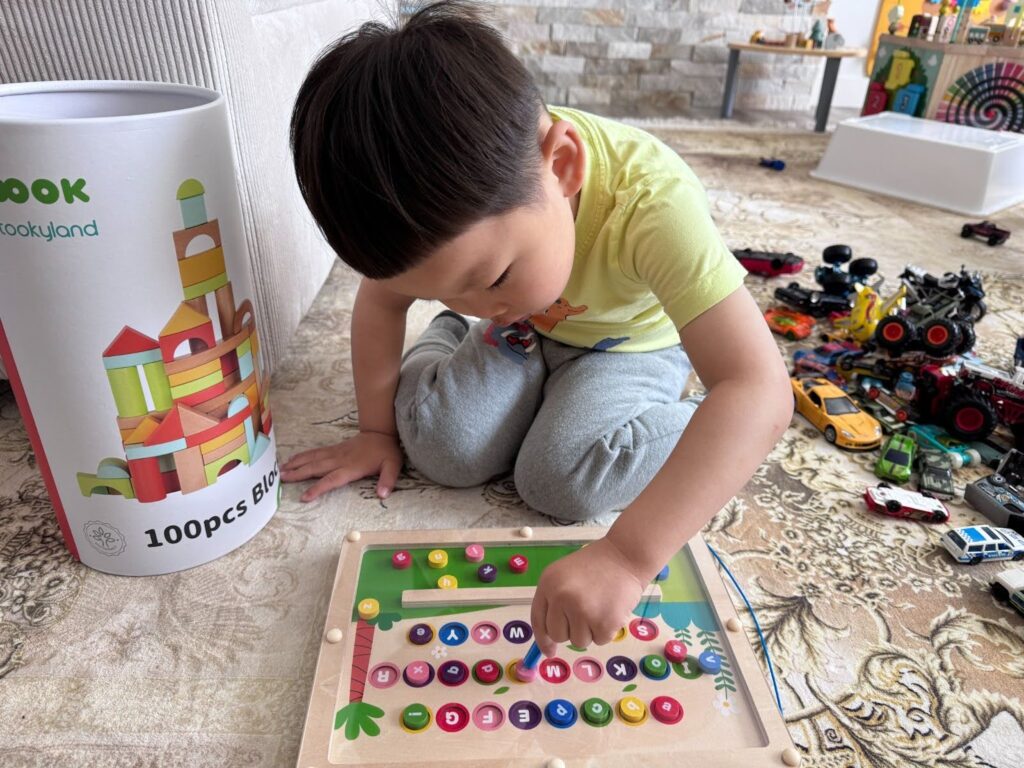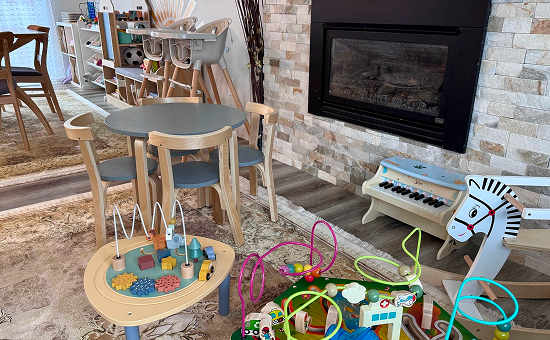Quality childcare hinges on a well-supported workforce. Coaching and supporting childcare staff in daycare, child care, infant care, and home daycare settings enhances professional growth, reduces burnout, and improves outcomes for children. From personalized mentoring to stress management techniques, these strategies empower caregivers to thrive. For expert tips on fostering a skilled and motivated childcare team, read on!
Why Coaching Childcare Staff Matters
Coaching childcare staff is the backbone of high-quality daycare, child care, infant care, and home daycare programs. Well-trained and supported caregivers create nurturing environments that foster child development and ensure operational success. Coaching equips staff with the skills, confidence, and resilience needed to excel in the demanding childcare field.
Impact on Child Development
Skilled childcare staff directly influence children’s emotional, social, and cognitive growth. Through caregiver coaching, staff learn to implement age-appropriate activities, manage classroom dynamics, and respond to individual needs, especially in infant care and preschool settings. For example, a caregiver trained in responsive caregiving can better support an infant’s early language development or a preschooler’s social skills, leading to measurable developmental milestones.
Benefits for Staff Retention and Morale
The childcare workforce faces high turnover due to stress and limited growth opportunities. Coaching addresses these challenges by fostering a sense of purpose and professional fulfillment. Regular mentoring and support improve job satisfaction, reduce burnout, and encourage long-term commitment. A supported staff member is more likely to stay, reducing recruitment costs and maintaining consistency in care.

Key Elements of Effective Childcare Staff Coaching
Effective coaching goes beyond basic training, focusing on personalized growth and skill-building. Here are the core components of successful childcare staff coaching programs.
Personalized Mentoring Programs
Tailored mentoring is critical for addressing individual caregiver needs. Coaches can work one-on-one to set goals, such as improving classroom management or mastering infant care techniques. For example, a mentor might guide a new caregiver through handling separation anxiety in toddlers, using role-playing and feedback sessions to build confidence. Regular check-ins ensure progress and adaptability.
Building Communication and Collaboration Skills
Effective communication is essential in child care settings, where staff interact with children, parents, and colleagues. Coaching should include training on active listening, clear instruction, and conflict resolution. Team-building exercises, like group problem-solving activities, foster collaboration, ensuring staff work cohesively to maintain a positive daycare environment.
Incorporating Early Childhood Professional Development
Ongoing professional development keeps childcare staff updated on best practices. Workshops on topics like trauma-informed care or inclusive education empower caregivers to meet diverse needs. Certifications in early childhood education (ECE) provide formal recognition of expertise, boosting credibility and career growth. Programs serving infants to preschoolers benefit from staff who stay current with developmental research.
Stress Management Strategies for Childcare Staff
Childcare work is rewarding but stressful, with long hours and emotional demands. Effective stress management strategies are essential to maintain staff well-being and performance.
Recognizing Burnout and Stress Triggers
Burnout in childcare staff often stems from high workloads, emotional exhaustion, or lack of support. Common signs include irritability, fatigue, or disengagement. In home daycare settings, isolation can amplify stress. Managers should regularly check in with staff to identify triggers early, using surveys or open discussions to gauge well-being.
Practical Stress Relief Techniques
Caregivers can adopt practical techniques to manage stress:
- Mindfulness Practices: Short meditation or breathing exercises during breaks can reduce anxiety.
- Time Management: Prioritizing tasks, like lesson planning or parent communication, prevents overwhelm.
- Peer Support Groups: Regular meetings allow staff to share challenges and solutions, fostering camaraderie.
For example, a 10-minute mindfulness session before a shift can help caregivers stay calm and focused.
Creating a Supportive Work Environment
A positive workplace culture is key to reducing stress. Leaders can implement:
- Flexible Scheduling: Allow staff to balance work and personal life.
- Wellness Resources: Provide access to counseling or stress management workshops.
- Recognition Programs: Acknowledge staff achievements to boost morale.
In daycare settings, fostering open communication and celebrating small wins, like a successful parent event, creates a supportive atmosphere.

Tools and Resources for Professional Growth
Equipping childcare staff with the right tools and resources supports long-term growth and program quality.
Training Platforms and Certifications
Online platforms like Coursera or ChildCare Education Institute offer courses on early childhood professional development. Certifications, such as the Child Development Associate (CDA) credential, validate expertise in infant care and preschool education. Local workshops in areas like daycare Bothell provide hands-on learning opportunities tailored to community needs.
Peer Mentorship and Community Support
Peer mentorship fosters collaboration and knowledge-sharing. Experienced caregivers can guide newer staff, sharing tips on managing challenging behaviors or engaging parents. Community networks, such as childcare associations in child care Bothell, connect staff with local resources and support groups, reducing isolation and encouraging professional growth.
Leveraging Technology for Staff Development
Technology streamlines training and operations. Apps like Procare or Brightwheel simplify scheduling and parent communication, freeing up time for professional development. Online training portals allow staff to complete modules at their own pace, covering topics from safety protocols to creative curriculum design.
Measuring the Success of Coaching Programs
To ensure coaching programs deliver results, childcare providers must track their impact and refine strategies.
Key Performance Indicators (KPIs)
Measure coaching success through:
- Staff Retention Rates: Higher retention indicates effective support.
- Parent Satisfaction: Surveys can reflect improved care quality.
- Child Progress: Developmental milestones show the impact of skilled caregivers.
For example, a daycare with a robust coaching program might see a 20% reduction in turnover within a year.
Feedback and Continuous Improvement
Gather feedback through staff surveys, parent reviews, and classroom observations. Use this data to adjust coaching strategies, such as adding more stress management training or focusing on specific skills like infant care. Regular program evaluations ensure coaching remains relevant and effective.
Conclusion and Brand Introduction
Coaching and supporting childcare staff is essential for delivering high-quality daycare, child care, and infant care. By prioritizing personalized mentoring, stress management, and professional development, providers can empower their workforce to excel, ensuring positive outcomes for children and families.
At Kido Heaven, we understand the importance of a skilled and supported childcare team. Serving families in daycare Bothell and child care Bothell, we foster a nurturing environment through expert staff training and support.
Why KidoHeaven Stands Out
✅ Licensed in Washington State
✅ Aligned with Early Achievers standards
✅ Working Connections subsidy accepted
✅ Daily updates via Brightwheel
✅ Located in Bothell, serving Mill Creek, Lynnwood & nearby areas
✅ Nutritious snacks, safe outdoor space, & positive mealtime routines
📞 Call 206-734-2040 to schedule a tour
🌐 Enroll now
Follow Our Mealtime Moments
Stay updated with more beautiful outdoor meals and daily learning routines on:
Instagram | Facebook | Nextdoor | Yelp | Winnie | YouTube | Upwards
FAQ
1. What is the role of coaching in childcare staff training?
Coaching enhances caregivers’ skills, confidence, and resilience, improving care quality and staff retention in daycare and child care settings.
2. How can childcare staff manage stress effectively?
Techniques like mindfulness, time management, and peer support groups help caregivers reduce stress and prevent burnout.
3. What qualifications should childcare coaches have?
Coaches should have experience in early childhood education and certifications like CDA or ECE training to provide credible guidance.
4. How does mentoring improve daycare quality?
Mentoring equips staff with skills to create nurturing environments, leading to better child outcomes and parent satisfaction.
5. Are there specific tools for childcare staff development?
Yes, platforms like ChildCare Education Institute and apps like Brightwheel support training and operational efficiency.



